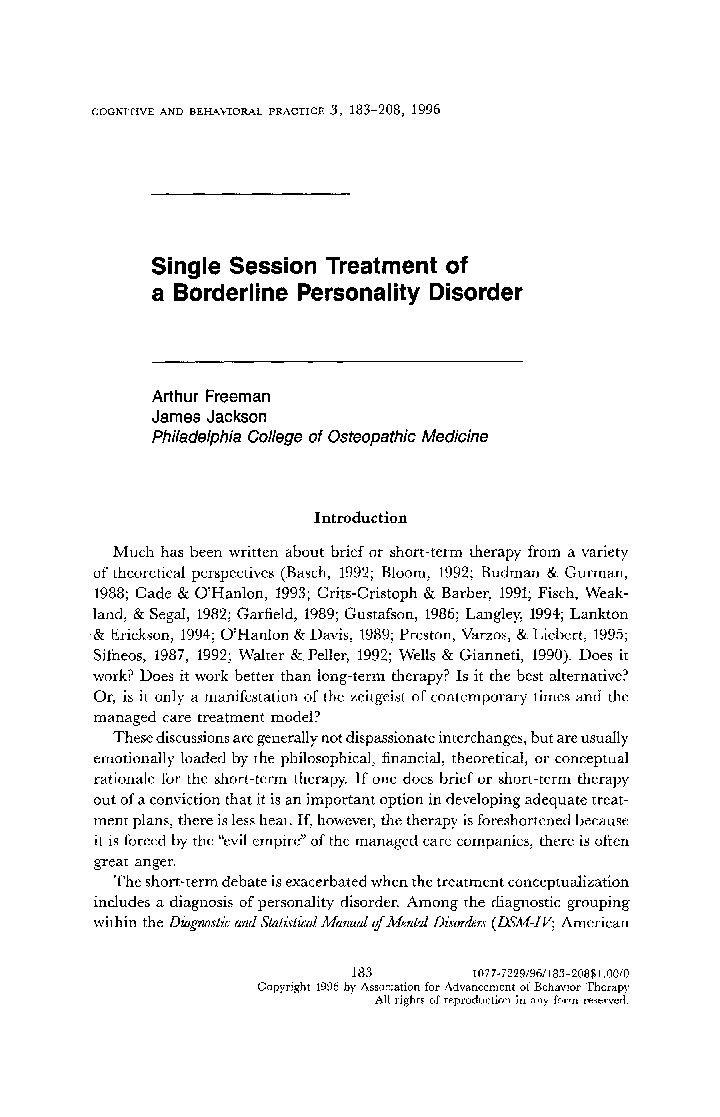ترجمه فارسی عنوان مقاله
درمان یک جلسه ای اختلال شخصیت مرزی
عنوان انگلیسی
Single session treatment of a borderline personality disorder
| کد مقاله | سال انتشار | تعداد صفحات مقاله انگلیسی |
|---|---|---|
| 33060 | 1996 | 26 صفحه PDF |
منبع

Publisher : Elsevier - Science Direct (الزویر - ساینس دایرکت)
Journal : Cognitive and Behavioral Practice, Volume 3, Issue 1, Summer 1996, Pages 183–208
ترجمه کلمات کلیدی
درمان یک جلسه ای - اختلال شخصیت مرزی -
کلمات کلیدی انگلیسی
Single session treatment , borderline personality disorder,

